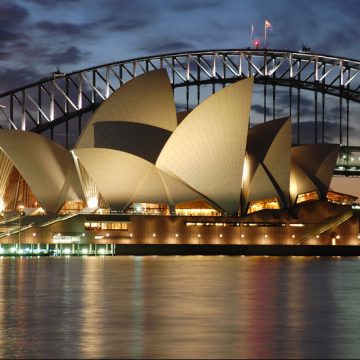
After inadvertently banning the industry earlier this year, the Australian government has been looking at ways that it can control online gaming in the country while allowing for online poker to exist. Towards that goal, the Australian Senate has recently completed an examination of online poker while two legislators move in supporting a revival of the online game.
After receiving feedback from Australian online poker players, the Australian Senate came to a few conclusions that do look good for potentially returning the online game Down Under. The Senate review stated that online poker was a peer-to-peer game (instead of a house-banked game like blackjack or other table games) that required skill with a smattering of chance littered into it. The body also found that online poker did not show as high a level of problem gaming as other activities did.
There is also evidence that, despite what the intent of the Australian law (the Interactive Gambling Amendment Act of 2016) had been, the Australian online poker market was basically forced to “black market” operators. The founder of the Australian Online Poker Alliance, Joseph Del Duca, pointed this out well to the legislators, stating “Even though the ban was introduced months ago, most Australian players have not stopped playing but have just moved their play to operators who have deliberately chosen to defy Australian law. If these operators don’t care for our laws, how likely is it that they will care for our citizens?”
With this said, the Australian Senate did not move rapidly to rectifying the situation that they created. The body wants to do more research into online poker, especially its “long term” (no definition of what this means) effects and impacts on the community that online poker legalization would bring. It also wants the IGAA to be fully implemented, especially its controls on problem gaming for both online players as well as live actors, before passing any changes that would bring online poker back.
That isn’t slowing down two Senators who would like to see online poker reinstated. Senators David Leyonhjelm and Cory Bernardi have come out as staunch advocates for online poker in Australia, with Leyonhjelm being the most vocal of the duo. Leyonhjelm advocates for a thoroughly regulated online poker industry in stating, “Rather than reflexively banning activities that include some risks and potential for harm, they can be legalized, regulated, monitored and, of course, taxed.”
In looking at a regulatory framework, Leyonhjelm points towards what is possibly the best online regulatory organization in the industry. “The government should closely follow the model of the United Kingdom, which involves issuing licenses specific to each kind of gambling, enables it to address risks to gamblers, sport and consolidated revenue from gambling in a logical and effective manner,” Leyonhjelm said.
The examination in the Australian Senate and the actions by the two Senators for regulation of online poker are a direct result of actions earlier this year. With unregulated online activities cutting into the profits of the legally licensed bookmakers and casinos in the country, Australian legislators wanted to act to correct the issue. These actions became especially important after a 2015 government review of offshore gaming suggested that significant changes needed to be made to the 2001 Interactive Gambling Act that already was in existence.
Roughly a year ago, the legislature came up with the IGAA, which put strict licensing rules on operations in the country. In the instances where businesses didn’t get the licenses, those companies would face fines that were in upwards of $6.75 million (Australian). The legislation also punished the individual players; those found that were in violation of the 2016 revision could be fined up to $1.35 million per DAY.
In March of 2017, the IGAA was passed and its impact was immediate. Online casinos that had been operating illegally in the country were eliminated by the new regulations, but it also caught up online poker operations at the same time. Sites such as PokerStars, partypoker and 888Poker (among many others) pulled their product from the country for two reasons. First, the new regulations didn’t have an exception made for online poker and, second, as publicly traded entities, the companies could not violate the laws of a sovereign nation.
There was just one problem with this. Prior to the regulations, Australians were quite happy letting online poker alone. Before (the Aussie Millions has been in existence since 1997) and after (Joe Hachem won the World Series of Poker Championship Event in 2005, sparking a boom in the country) the legislation was passed in both 2001 and 2016, Australians have been solid proponents of online poker in the country. Thus, the pullout of online poker from the country has been met by vociferous opposition.
It doesn’t appear that the situation in Australia will rectify itself anytime soon. With the interest of the government to see what effect the new regulations will have first, it could very well be a couple of years before the Australian government gets around to potentially changing the laws. Whether that kills the solid online poker market Down Under or not remains to be seen.















